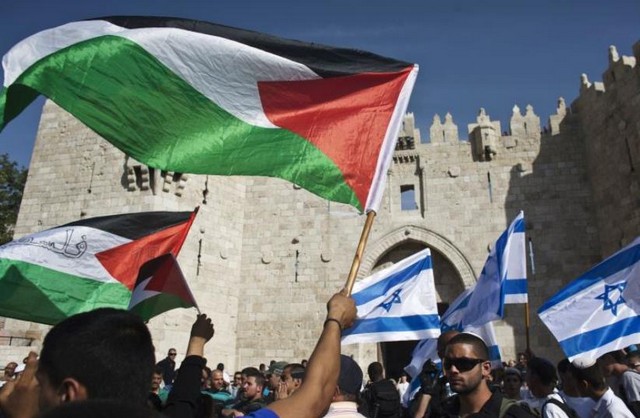By Ranjan Solomon
B’Tselem is one of Israel’s foremost human rights organizations. But it is the first time that it has challenged Israel’s claim to being a democratic state. In a report titled “A Regime of Jewish Supremacy from the Jordan River to the Mediterranean Sea: This is Apartheid,” B’Tselem challenges ‘the common perception in public, political, legal and media discourse is that two separate regimes operate side by side in this area, separated by the Green Line’. One regime, inside the borders of the sovereign State of Israel, is a permanent democracy with a population of about nine million, all Israeli citizens. The other regime, in the territories Israel took over in 1967, whose final status is supposed to be determined in future negotiations’. The report highlights racial discrimination in the areas of land, citizenship, freedom of movement and political participation. It goes even deeper and those who are on the side of seeking a just peace hope that the report will serve as an important step that opens spaces for Israelis and Palestinians to create a widespread account “on their relationship, political position and collective action in order to dismantle this Israeli apartheid”.
Palestinian general elections for 2021 have been announced at long last. They will include legislative elections on 22 May 2021, presidential elections on 31 July and the Palestinian National Council elections on 31 August 2021. About two million Palestinians in Jerusalem, the West Bank, and Gaza Strip are eligible to vote. The UN and the EU welcomed the development. The absence of democracy for well over a decade in the Palestinian territories meant that there was neither accountability nor people’s participation in political affairs. Hence, this is a welcome development. The announcement that imprisoned Palestinian leader Marwan Barghouti will run for president in these elections has stirred huge interest and optimism. As a leader with a mass base and charisma, his chances are rated as being very high because of his mass base and the fact that he has been jailed for nearly two decades. With political changes in the USA, the outcome of the elections will be keenly watched. Of equally keen interest is the question of how Hamas will fare in the elections. Should Hamas win, what will the response of the international community be?
In parallel to the prospects of elections, there are other worries too. “…Palestinians are worried that Israel might block this year’s polls in East Jerusalem after the US recognition of the city as Israel’s capital in 2017 and amid preparations for the Israeli elections on March 22. Abbas has repeatedly said that the Palestinian elections will not be held without Jerusalem. Israeli intelligence services have started to warn Hamas officials in the occupied West Bank not to participate in the upcoming Palestinian elections. Israelis first summoned a senior Hamas official Sheikh Omar Al-Barghouti to the Ofer Detention Centre and instructed him not to take part in the presidential, legislative and National Council elections. Al-Bargouthi was released just recently. He is not the only one to receive such a warning.
Meanwhile, Israel continues to further weaken democracy by prohibiting even peaceful resistance. There is a huge chorus of protest against the persecution and intimidation’ of Palestinian anti-settlement activist Issa Amro. Amro is the founder of the Hebron-based group Youth Against Settlements, saying they feared he would spend time behind bars. The UN officials have condemned his prosecution and termed it as being politically motivated. A senior UN official has observed that “rather than prosecuting human rights defenders, Israel should be listening to them and correcting its own human rights conduct.”
Meanwhile the world watches with curiosity, and a degree of hope mixed with uncertainty, as to how the Biden administration will fare in ironing out the discord between Palestinians and Israel on the future. What chances will democracy really have as the future unfolds? Will Biden show courage and open up spaces for a just settlement? Will the powers that manage the backroom of US politics give him the leeway to do what it takes for a just and durable resolution?
The US does not have a credible track record of steering Israel and Palestine towards a convincing peace. Zionist lobbies have controlled and dictated US policy. And, for most part, that policy has camouflaged truth. Gandhi once said: “Truth never damages a cause that is just”. The question before us is: Will Biden create history and change the content of US policy to forge a new day in which the pursuit of truth and justice bring peace to both peoples?
Ranjan Solomon is a widely experienced civil society/human rights/GO leader with varied experiences in organizational transformation and creating social change through advocacy, communications, and issues of education.
29 January 2021
Source: palestineupdates.com

